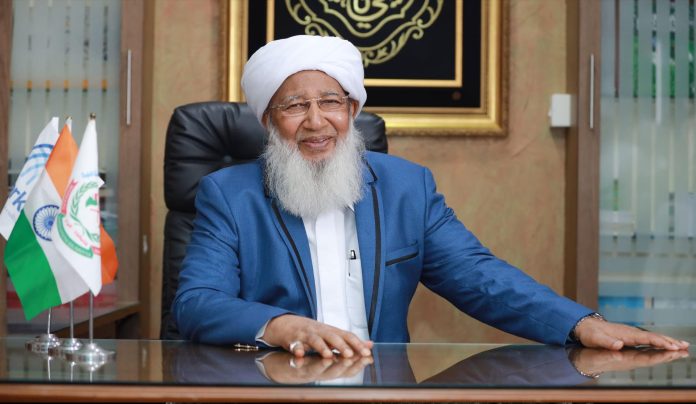New Delhi — In a significant development, the scheduled execution of Nimisha Priya, a Malayali nurse facing the death penalty in Yemen, has been postponed following the intervention of prominent Muslim scholar and Grand Mufti of India, Sheikh Abubakr Ahmad, also known as Kanthapuram AP Aboobacker Musliyar, reported the Hindu.
The Grand Mufti’s involvement came after Chandy Oommen, the legislator from Kerala’s Puthuppally constituency, reached out to him seeking help due to his deep ties with Yemeni Sufi leaders. Nimisha Priya was convicted in a high-profile murder case in North Yemen and was facing imminent execution.
“In cases where an Indian citizen is on death row abroad, it is both a national and moral obligation to seek a humane resolution,” Sheikh Abubakr said in a statement.
Using his decades-long relationship with respected Sufi scholar Habib Umar bin Hafeez of Tarim, Yemen, Sheikh Abubakr initiated talks with Yemeni authorities and tribal representatives. Habib Umar’s office played a crucial role by reaching out to the North Yemeni government and the victim Talal’s family to open pathways for dialogue.
An emergency meeting was convened in North Yemen on Habib Umar’s recommendation, which included top judicial authorities, tribal elders, and the victim’s family. Although Talal’s family has not yet confirmed a decision, the Grand Mufti noted that the ongoing discussions have shown promising signs of progress.
Efforts to mediate continued with the involvement of Habib Abdurrahman Ali Mashhoor, who led a delegation to Dhamar, the hometown of the victim’s family. Additionally, Justice Mohammed bin Ameen — a senior judge and close relative of Talal — joined the negotiation process following a request from Habib Umar. His appeal led to the granting of a temporary stay by the Special Criminal Court under the Yemeni Public Prosecution.
The court’s decision, signed by Judge Rizwan Ahmed Al-Wajri and Swari Mudeen Mufaddal, confirmed the official postponement of the execution initially scheduled for July 16.
Sheikh Abubakr described this as a “breakthrough,” especially considering the emotionally sensitive tribal setting and previous difficulties in accessing the victim’s family. The details of this intervention have been shared with the Prime Minister’s Office in New Delhi.
He further stressed the importance of sustained dialogue and negotiation to ultimately secure clemency and a fair outcome for Nimisha Priya.




